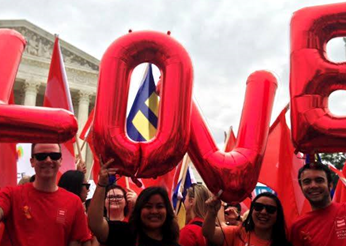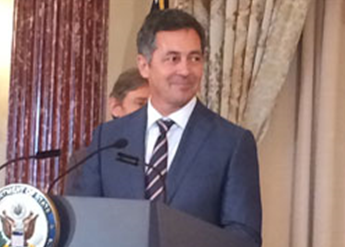As 2015 draws to a close, the Human Rights Campaign (HRC), the nation's largest lesbian, gay, bisexual and transgender (LGBT) civil rights organization, takes a closer look at the many ways in which the fight for equality has made progress, as well as those places where the fundamental rights of LGBT people are increasingly under siege.
Good News:
In the United States, millions of Americans celebrated a landmark Supreme Court ruling in June that made nationwide marriage equality the law of the land. A month earlier, 62% of Irish voters voted 'yes' in the first-ever referendum for marriage equality in the world. Same-sex couples in Ireland began tying the knot in November. In June, Mexico's Supreme Court ruled that state bans on same-sex marriage were unconstitutional, paving the way for a court-based legal strategy to compel states without marriage equality to clear the way for same-sex marriages. Both Cyprus and Chile passed civil union legislation in 2015 but stopped short of full marriage equality.
The United States became the first country in the world to have a dedicated senior government official whose mandate is to advance LGBT rights and equality around the world. The U.S. government appointed Randy Berry, an accomplished career foreign service officer, as its first-ever special envoy for LGBTI human rights.
Nepal's new constitution protects LGBT citizens:
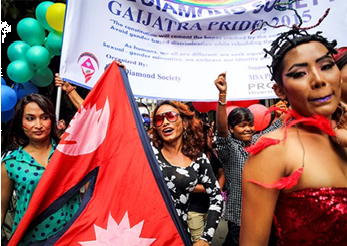
Blue Diamond Society, Manisha Dhakal
In September, Nepal became the first Asian nation, and one of a handful in world, to include protections for LGBT people in its new constitution. Nepal has set an example for giant neighbors like India and China, where LGBT people are offered limited legal rights and face discrimination and harassment.
Transgender recognition laws gain ground globally:
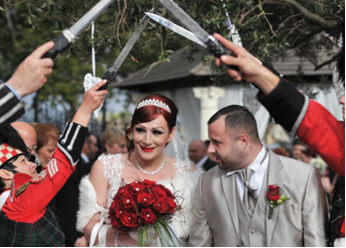
Jason Borg, Courtesy of Times of Malta
In April, lawmakers in Malta unanimously adopted a groundbreaking bill that recognizes the fundamental rights of transgender, intersex and genderqueer people. Similarly, Ireland passed a law in July that allows transgender people to change their gender without legal or medical certification. Thailand's government passed a gender equality law in September that provides protections from discrimination on the grounds of gender identity. Vietnam followed suit and passed a law in November protecting transgender people and legalizing gender reassignment surgery. Bolivian lawmakers voted in December to allow adult transgender people to legally change their name and gender on government documents.
Hateful anti-LGBT law struck down in Kazakhstan:
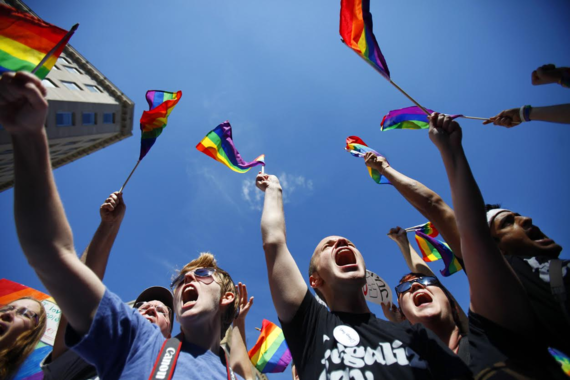
AP Jacquelyn Martin
In May, the Constitutional Council of Kazakhstan invalidated on technical grounds a proposed Russian-style "anti-propaganda" bill that would have criminalized LGBT human rights advocacy. Kazakhstan's senate had passed the bill in February and it had been awaiting the president's signature. However, the bill may still be reintroduced by anti-LGBT elements in the government.
Ukraine outlaws anti-LGBT workplace discrimination:
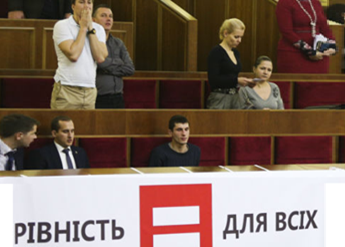
Bogden Globa, Executive Director, Tochka Opory
Ukraine's parliament took a step towards preventing anti-LGBT discrimination in the workplace in November by passing workplace nondiscrimination legislation as part of a series of reforms aimed at securing Ukrainian citizens visa-free travel privileges to the European Union.
Mozambique Decriminalizes Homosexuality:
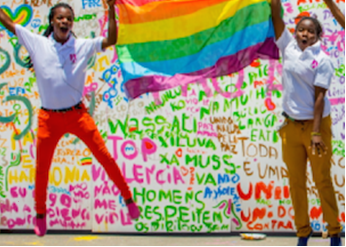
"Lambdamozi," Courtesy of Lambda Mozambique
Mozambique decriminalized homosexuality in June by introducing a new penal code that scrapped Portuguese era colonial prohibitions on homosexuality. The revision of the penal code was a monumental victory for LGBT activists. However, the Mozambican government continues to deny recognition to Lambda, the country's leading LGBT rights organization.
United Nations pushes for LGBT human rights:
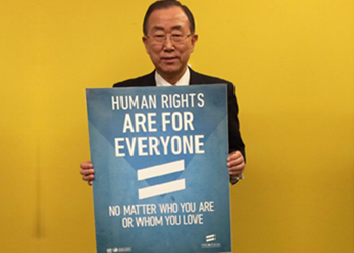
Courtesy of Charles Radcliffe, OHCHR
The United Nations, under the leadership of Secretary-General Ban Ki-moon, continued to be a staunch ally in the fight for equality in 2015. In June, the U.N. human rights office released a landmark report on the state of LGBT rights around the world. The report noted substantial progress on LGBT equality, while highlighting the violence, criminalization and discrimination that LGBT people continue to face in every region of the world.
Dangerous developments:
ISIL targets gay men in barbaric ways:
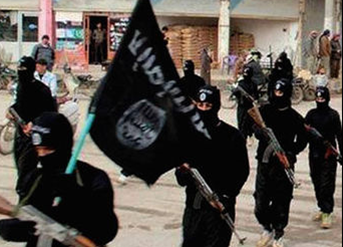
As it continues its extremist path of destruction across Iraq and Syria, ISIL has released images and videos documenting the brutal execution of men accused of being gay. In a particularly shocking example, ISIL released videos of the public execution of four gay men on Twitter on the same day the U.S. Supreme Court ruled in favor of marriage equality, using the hashtag "Love Wins." In August, the U.N. Security Council convened a session to discuss the plight of LGBT people who face horrific violence and persecution in areas controlled by ISIL.This was the first-ever Security Council session explicitly focused on LGBT people.
Gambian president continues persecution of LGBT community:
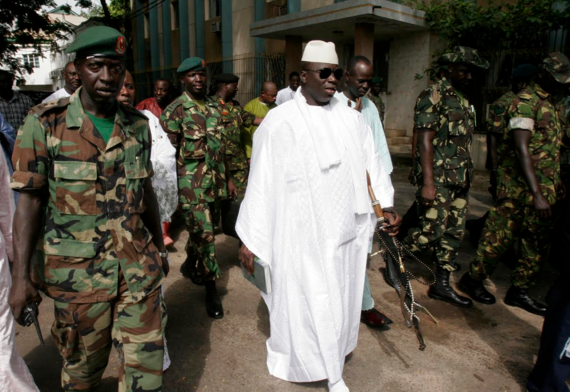
AP Rebecca Blackwell
At a rally in May 2015, President Yahya Jammeh threatened to slit the throats of gay men. U.S. National Security Advisor Susan Rice issued a statement condemning Jammeh's "unconscionable" threats against LGBT Gambians, who live under a cloud of fear. In 2014 Jammeh signed into law a draconian measure further criminalizing being gay with the possibility of life imprisonment. After the law was passed, Jammeh's security forces immediately began cracking down on LGBT people.
Mass arrests of LGBT people in Egypt:
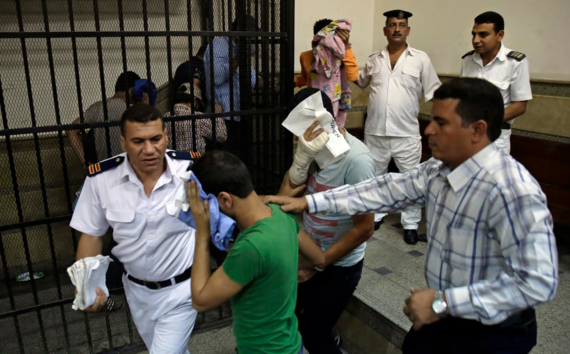
AP Hassan Ammar
Egypt's crackdown on LGBT people, especially gay men and transgender women, continued to widen in 2015. Those arrested were often prosecuted under charges of "debauchery." The ongoing crackdown is part of a calculated effort by President Abdel Fattah el-Sisi to establish his political legitimacy with the conservative Islamist opposition.
World Congress of Families hosts international conference
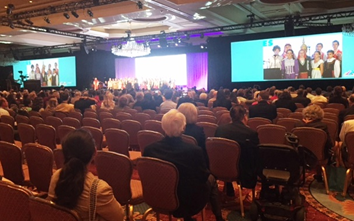
In October, the notoriously anti-LGBT World Congress of Families (WCF) held an international conference in Salt Lake City, bringing together thousands of the most hateful extremists from around the world. Designated an anti-LGBT hate group by the Southern Poverty Law Center, the Conference included speakers like Senator Ted Cruz's father, Rafael, who called LGBT advocates pedophiles and smeared transgender people; Nigeria's anti-LGBT activist Theresa Okafor, who has compared LGBT people to the terrorist group Boko Haram; and Sharon Slater, the president and founder of Family Watch International, who has described LGBT equality as "inherently destructive." WCF has been successful in promoting anti-LGBT laws and homophobia, and contributing to hate-based violence against LGBT people across the globe, from Russia to Nigeria to Australia.

